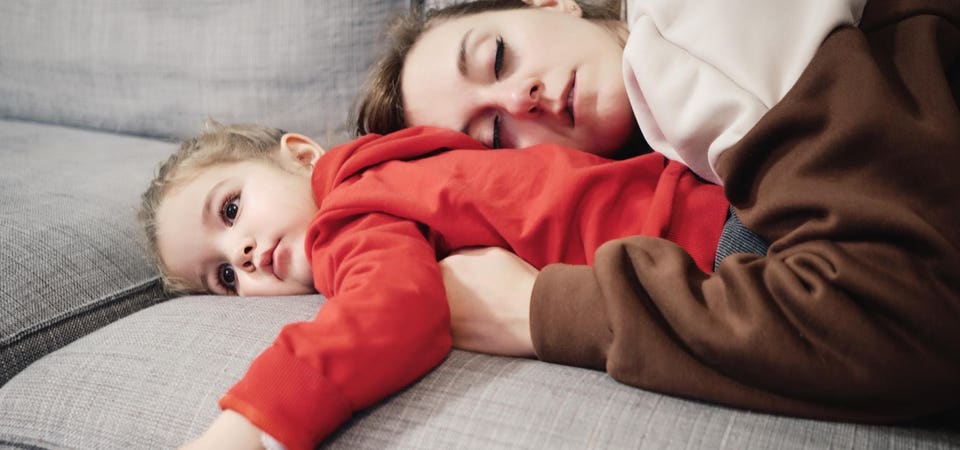Parents can unknowingly lean on their children to fill a partner’s void. Here’s how that narrative Have you ever encountered someone who views their parents as their closest confidant but experiences discomfort due to excessive closeness? Or perhaps you’ve known someone or been in a relationship with someone, who consistently turns to their parents for emotional support whenever needed? Instances of overbearing closeness between parents and children are not uncommon. While a strong and comfortable parent-child bond characterized by the sharing of life experiences and feelings is healthy, there exists an extreme scenario where a parent relies excessively on the child as a surrogate partner—a phenomenon known as emotional, or covert, incest.
This situation may arise when the other parent is emotionally or physically absent, abusive or no longer present. What leads to the occurrence of emotional incest? have outlined three primary potential causes: Needless to say, the consequences of emotional incest can be long-lasting, resulting in enduring challenges throughout the child’s life. Recognizing the indicators of dysfunction at an early stage is crucial to prevent such unhealthy patterns from developing.
Here are three ways emotional incest shows up in everyday relationships. 1. The Child Confidant In this scenario, a parent consistently shares intimate details of their personal life, including relationship struggles and emotional challenges, with their child.
The child, in turn, becomes the confidant, burdened with the responsibility of providing emotional support that transgresses the boundaries of a typical parent-child relationship. A published in sheds light on the aftermath of parental divorce, revealing that children experience heightened levels of sensitive maternal disclosures—both in frequency and detail. These disclosures are significantly associated with adolescent adjustment difficulties, particularly psychological distress.
Inappropriate sharing of adult concerns disrupts the natural balance of the parent-child dynamic, placing an undue burden on the child. They become entangled in a web of adult complexities, forced to navigate emotions and issues beyond their years. The consequences of this emotional burden are profound, affecting the child’s identity, relationships and overall emotional well-being.
Premature exposure to adult concerns leaves a lasting imprint, influencing the child’s journey into adulthood. Recognizing and addressing this dynamic becomes paramount for preserving the child’s emotional health and breaking the cycle of dysfunctional patterns. 2.
Emotional Spouse Replacement Following a divorce or marital discord, a parent may find solace by seeking emotional support from their child, effectively turning them into a substitute for the companionship previously offered by the absent spouse. The child, in turn, might reluctantly step into the role of an emotional partner, shouldering the responsibility of meeting the parent’s needs for companionship and support. This arrangement, while providing a temporary emotional crutch for the parent, locks the child into an uncomfortable position.
Their natural progression toward emotional independence and the formation of healthy relationships outside the family unit is hindered. Their own emotional development takes a backseat as they grapple with the complexities of adult relationships (with a direct bearing on their lives) prematurely. A recent exploring parentification concluded that this phenomenon can be viewed as a form of emotional abuse and neglect.
The study’s predominantly female “parentified” participants described their childhood as daunting, demanding constant adaptation to cope with fear and anxiety. As the study emphasizes parentification as a potential precursor to enduring emotional struggles in adulthood, it becomes imperative to nurture the child’s emotional growth for healthy future development. 3.
Guilt-Inducing Emotional Manipulation A parent can also subtly manipulate their child’s emotions by making them feel guilty for expressing their own needs or pursuing independent relationships. The child, entrapped in this web of emotional manipulation, learns to prioritize the parent’s emotional well-being over their own, unintentionally forming a pattern of emotional subservience. As the child matures, they may grapple with a skewed sense of self-worth, struggling to assert their needs and desires in interpersonal relationships.
This pattern of emotional subservience can obstruct the development of healthy boundaries, hindering the child’s capacity to form balanced connections. identifies enmeshment (blurred boundaries) as a key player in dysfunctional family dynamics, revealing that higher perceived family enmeshment in adolescents is linked to increased emotional dysregulation. This manifests in negative appraisals of distress tolerance, a heightened negative mood during tasks, lower baseline vagal tone and increased vagal response during challenges.
Recognizing and addressing these manipulative dynamics is necessary for breaking free from the vicious cycle, enabling the child to cultivate fulfilling, reciprocal relationships as they navigate the complexities of adulthood. Conclusion In emotionally incestuous relationships, parents manipulate their child’s emotions to fulfill their own needs. Recognizing and addressing emotional incest is crucial for maintaining healthy parent-child relationships and supporting children’s emotional development.
Understanding its manifestations and root causes helps break the cycle, creating environments promoting emotional well-being and autonomy for both parents and children. Seeking guidance from therapists or psychologists can be instrumental in navigating and healing from these complex dynamics. .
From: forbes
URL: https://www.forbes.com/sites/traversmark/2023/12/09/3-reasons-why-some-parent-child-relationships-turn-toxic-from-a-psychologist/



